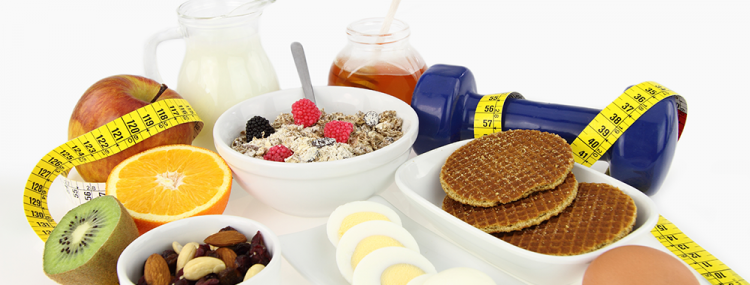
How Does Protein Help In Weight Loss?
Are you wondering about the potential benefits of a high-protein diet? Maybe you heard from a friend that she lost 10 kgs by sticking to a low-carb, high-protein diet plan and now you’re eager to do the same! If you’re curious about how this diet works, you’ve come to the right place. Let’s go over some of the facts about protein and its role in the body.
Protein is one of the three main macronutrients – carbohydrate, fat, and protein- and it is involved in several vital bodily processes.
-It is used by the body to build and repair tissues and promote muscle growth.
-Enzymes are proteins which help in digestion, energy production, blood clotting, and muscle contraction.
-An essential protein is called Keratin which is a structural protein that is found in the skin, hair, and nails.
In addition to the functions mentioned above, protein is also involved in numerous other bodily processes and provides several benefits including maintaining bodily fluids balance and boosting immunity.
Understanding the role of protein in weight loss:
Before we jump into the details of how a high-protein diet helps in weight loss, it’s important to understand that weight loss does not occur in isolation of other bodily or natural processes – it is linked to many variables, including medical history, age, current weight, lifestyle and stress levels.
Experts agree that a higher intake of protein reduces hunger pangs and late night cravings while consistently helping to shed calories and burn fat. But, how does this process really work? Below are 5 ways in which protein can help in weight loss:
1. Protein reduces appetite
Increased protein consumption leads to an increase of appetite-reducing hormones in the body called GLP-1, peptide YY and cholecystokinin, while simultaneously decreasing levels of the hunger hormone called ghrelin. So, if you were to replace high-fat and high-carb foods with protein-rich alternatives, you would notice a drop in your hunger pangs and feel much more full after meals. Over time, this helps to reduce weight since you end up consuming fewer calories naturally.
2. Protein reduces ‘sugar-highs’ and sugar-cravings
One of the biggest benefits of protein is that by adding it to your diet regularly you can reduce sugar cravings – i.e. a sudden urge to eat sugary foods when the body is coming off a ‘sugar-high’.
Usually, people end up eating unhealthy snacks or junk food because of these sugar cravings. But, if you were to maintain a healthy balance of proteins and carbs in your diet, this would slow down the absorption of sugar from your stomach to your bloodstream. Ultimately, this would help to avoid your blood sugar from escalating which leads to cravings or hunger pangs.
3. Protein burns more calories
The process of digesting and metabolizing food requires calories and this is usually referred to as the thermic effect of food (TEF). Many experts suggest that protein has a greater thermic effect than carbs or fat. This means that metabolizing proteins burn a lot more calories than carbohydrates or fats!
4. Protein boosts fat burning
It has been scientifically proven that the body cannot adequately utilize or burn fat without the help of either carbohydrate or protein. During a weight loss program, the body begins to lose muscle and fat, hence consuming enough protein becomes essential. Protein not only helps to burn fat but plays an important role in the process of building lean muscle.
5. Protein Improves Muscle Repair & Growth
If you are working out regularly and strength training is a part of your exercise regimen then adequate protein consumption becomes very important. It is recommended to eat a high protein meal after a training session to boost muscle repair and growth.
Research suggests that a protein intake of around 30% of calories could be ideal for weight loss. This means 150 grams per day if you are on a 2000-calorie diet. To find out the right amount for you, multiply your ideal daily calorie intake by 0.075.
It’s important to keep in mind that increasing your protein intake by itself will not necessarily lead to weight loss. If you eat too much protein it may still lead to weight gain similar to when you eat too many carbs or too much fat. One of the best ways to leverage the benefits of this diet is to combine it with a strength training program but speak to an expert before you decide to try out any sort of new exercise or diet plan.


